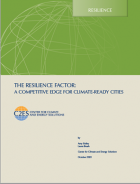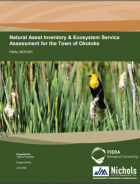Introduction
In this module, you will meet the people who make urban agriculture and local food happen. Consumers, small plot intensive farmers, teachers, community advocates whose stories will spark your imagination. They are Alberta based. But they are also part of a global trend towards sustainable local food.
As the module progresses, the story will grow from the personal (and their businesses) to the city and the region. The people who have long supported local food and beginning urban farmers will offer their perspective (passionately). And we will look at the economics of urban agriculture and local food from the conventional perspective and the community perspective. Two economists will argue that the lens of economics are changing.
We conclude with some tough questions. Why is agricultural land inside city boundaries a stand-in for “land to be developed”? Why is it so hard for those who want to farm idle public land inside cities to get access? Can someone make a living from urban agriculture? What about developing new market channels? Is that the real issue around local food as a viable business?
Unit 1
Unit 1 - The Economics of Individual Urban Agriculture Businesses
Urban agriculture is not a fad. This is not about chickens and bees in backyards. This is the cheapest way for new farmers, especially immigrants, to enter agricultural production and direct marketing to urban customers.
If you are producing agricultural products in Alberta, where are your customers with the highest disposable income? Not in China or India, not in the USA, not in Europe. In Alberta. Where is a market growing at 2.4% per year over the last decade? Alberta. Where is the youngest market in Canada, median age, 36.1 years? Alberta. Runs counter to Alberta’s focus on export markets for agricultural commodities for the last 15 years. Yes, Albertans cannot eat all the beef, grain and oilseeds that Alberta produces but if a new farmer is focused on maximizing returns and marketing their own product why would they sell to the export commodity market?
There are emerging viable economic models for urban agriculture entrepreneurs (SPIN Farming, developed by a vegetable producer in Saskatoon) and Community Supported Agriculture.
Urban agriculture is about new businesses in urban areas. And there are Albertan examples.
What forms of urban agriculture should a municipality promote? At the core of this choice is the question whether there are business models that make urban agriculture a sustainable business for individual entrepreneurs. Urban municipalities promote community gardens because of the social and community building aspects of community gardens but are there successful business models for individual urban agriculture food producers?
Alberta has entrepreneurs who are pioneering new business models. That requires urban municipalities to think about how they support new urban agriculture businesses. SPIN Farming and Community Supported Agriculture are two business models that professional planners should be aware of.
Community Supported Agriculture:
Anita Gregoire, On Borrowed Ground, has run a Community Supported Agriculture operation in Edmonton by borrowing neighbours' backyards for growing gardens. Anita as a teacher focuses her CSA on education. “We don’t just grow gardens, we grow gardeners”. She is the website organizer for Alberta’s CSA’s
- An Urban Farmer on Urban Farming Economics
- Using Community Supported Agriculture to Educate New Farmers
SPIN Farming:
Rod Olson and Chad Kile are the pioneers of Small Plot Intensive (SPIN) Farming in Calgary with Leaf and Lyre Urban Farms. Rod has a farm background from Camrose, Alberta. Chad wanted to farm. SPIN Farming was their entry. There are now seven SPIN Farming operations in Calgary. Dave Carleton with Leaf Ninjas, Calgary is one of those seven operations.
Additional videos:
Find more videos from Anita Gregoire, Rod Olson, and Dave Carlton on the YouTube playlist for Growing Insights Module 1.
Unit 2
Unit 2 - Local food and urban farming: Making it really work
1. Alberta Agriculture has had a program, Explore Local, that has been promoting local food for over eight years. Bill Reynolds, Alberta Agriculture and Rural Development, has been one of the early and continuing advocates of local food in Alberta. Bill starts his series of videos by describing the new ethos emerging with consumers about what food means to them and their community. Video: Bill Reynolds - What's Impacting the Local Food Opportunity
2. Sridharan Sethuratnam, FarmStart, Ontario helps New Canadians and new farmers try urban farming in Canada. Most new immigrants to Canada arrive with a background in small-scale agriculture. Sri is passionate about their opportunities to bring new crops and markets to Canada. FarmStart is based in Guelph, Ontario and the McVean Incubator Farm near Brampton, Ontario is one of its projects. Find out how it works in this FarmStart video
Local Food Opportunities:
Bill Reynolds fills in the rest of the story around seizing opportunities with Local Food. Community Supported Agriculture is the best known of a new variety of marketing channels for local food. Bill describes the "..... Community Supported" options out there for urban agriculture and local food producers to seize. His concluding video covers the Big WE of seizing opportunities in Local Food.
• Bill Reynolds: What are the Local Food Opportunities?
• Bill Reynolds: How Do WE Seize the Opportunities?
Incubating New Farmers:
• Sri Sethuratnam's presentation at the Food Secure Canada conference, Nov. 2012, Edmonton describes FarmStart and the McVean Incubator Farm for New Canadian farmers.
• Small-Scale Agriculture: 5 acres is big enough; it's worked for a 1000 years as small-scale farming.
Alternate Crops: The Opportunities for New Canadian Farmers.
As Canada's ethnic diversity grows, so does the opportunity for new farmers to grow crops they know from their homelands and have a market for in their ethnic communities.
• Farming Food Diversity in York Region
The Informed Local Food Consumer
Chantelle Leidl describes why she is involved in Urban Agriculture. Chantelle Leidl is the new engaged customer that Bill Reynolds describes. A well-traveled environmental engineer who has actual work experience in conventional horticultural operations in Canada, Chantelle describes why she is engaged in urban agriculture. Chantelle is a customer of Anita Gregoire's "On Borrowed Ground"
• Why I Am Involved in Urban Agriculture
• Conventional Horticulture and Urban Agriculture
• What Community Supported Agriculture Means to Me
SPIN Farmers Talk about Marketing SPIN Farming and Growing the Community
Rod Olson describes how Leaf and Lyre Urban Farms has connected with Calgary homeowners and mentored other SPIN farmers in Calgary.
• Is Urban Agriculture a Fad?
• SPIN Farming, Relationship with the Homeowners
• On Courses for Urban Farmers
Dave Carlton operates the urban farm of Leaf Ninjas, SPIN Farmers in Calgary. He talks about marketing, growing the local food customer base and local food in community building.
• Marketing Food from SPIN Farming
• The Rise in Popularity of Urban Agriculture and Local Food
• Local Food and Community
Unit 3
Unit 3: New Economic Models for Local Food & Urban Agriculture: Why it Matters for Cities & Towns
Mark Anielski, is a co-founder of Genuine Wealth Inc. He says we need to change the language about agricultural land inside city boundaries. We talk about green spaces, park land, recreation land; we need to call agricultural land 'food land' and use the same pricing mechanisms to protect it as we do green spaces. Mark Anielski is an economist and the author of the Economics of Happiness.
Video: Mark Anielski - The Economics of Local Food and Happiness
• As part of the Horse Hills Area development planning (N.E. Edmonton), a number of options to conserve unique horticultural and greenhouse agricultural lands were made. Mark Anielski describes some of his work to present options to the Edmonton's City Council, including being a member of the Legacy Lands Board. On Agricultural Land Development in Edmonton
• Anielski makes the case that demand for high quality food means cities have to get active in making Foodland inside their boundaries available for food production. Mark Anielski: Marketing Urban Agriculture
Robert McGarvey is a co-founder of Genuine Wealth Inc and an Executive Committee Member of the Economic Research Council, London, England. He writes on and studies assets and the asset revolution that is informing the trends on monetary reform and pricing reform. He makes the case that we know the economic value of built urban structures (houses, condos, office towers). We don't have good economic valuation systems for local food and urban agriculture. The current economic structural measures, principally profit, misses key fundamentals that drive economic activity. For example, what is the value of the perception that your food products are safe? Ask Alberta after the BSE crisis and the e-Coli recall.
Video: The Economics of Price and Local Food
• Robert McGarvey talks about tangible and intangible assets and local food. You know the difference between dirt and soil. Does our current economic system know how to value land, in particular the most productive soils in Alberta? The Economics of Tangibles, Intangibles and Local Food
Unit 4
Unit 4: What are we missing? Undeveloped and agricultural land in our cities
- Len Leskiw. P.Ag., is President and Senior Soil Scientist with Paragon Soil and Environmental Consulting Inc. He talked at the Alberta Institute of Agrologists 2013 conference about the horticultural operations in NE Edmonton and the value of agricultural land inside city boundaries. He asks the question: "Why are agrologists on the side-lines as our best soils in Alberta disappear from crop production?" Video: Land-use Conflicts in NE Edmonton
- Paul Hughes, Grow Calgary, has spent many years negotiating the lease arrangements for an urban farm within the City of Calgary. In 2013, with the first months of operation of a volunteer-supported farm whose produce goes to the Calgary Food Bank, Paul Hughes describes why cities need to put vacant agricultural land to work for community and social good. Video: Why Cities Need to Put Vacant Land to Work
- Brad Stelfox also makes the case that Local Food is a rural planning Issue. Agricultural land loss and agricultural land fragmentation are a long term Achilles Heel for Alberta's capacity to produce local food. Stelfox talks about history, the dramatic landscape changes with agricultural settlement in Alberta. He also talks about the future: the challenge of agricultural land loss and fragmentation and Alberta's ability to feed itself. Today, Alberta exports 70% of what it grows. In forty years, Alberta will be a net importer of food as urban sprawl and agricultural land fragmentation remove Alberta's most productive agricultural land. Video: Loss of Alberta's Agricultural Soils to Competing Land Uses
Unit 5
Unit 5: Is urban agriculture and local food about developing new channels to market locally grown food?
Explore this case study from Sangudo:
- Sangudo Opportunity Development Co-op(Alberta Agriculture article and video)
- Dan Ohler: If It Works in Sangudo, Why Not In Your Community? (article)
- Video: The Story of Sangudo Custom Meats
- Michael Lewis makes the case that the dominant model for financing farm succession isn't feasible going forward. The alternative, Social Enterprise requires broadening the stakeholders who invest in agriculture and food. Sangudo, Alberta, is a case study of citizen cooperation and investment in their community businesses. Widening the Investors in the Farm: Community Investing(e.g. Sangudo)
- Paul Cabaj is Director of Cooperative Development, Alberta Community and Cooperative Association, He was involved in Sangudo's community investing project. Co-operatives and Local Food
More Resources
Additional Resources for Module 1
Articles:
Community Supported Agriculture (CSA): A detailed review by Alberta Agriculture and Rural Development
The Economics of Small Plot Intensive Farming: SPIN Farming FAQs
Local Food In Alberta: Explore Local (Alberta Agriculture's Local Food Initiative)
Can urban farming go corporate?
Urban Farms don't make money - so what?
Resources:
Getting Started in Local Food In Alberta: Alberta Agriculture's resources to guide Local Food businesses
New Energy Stories's series of videos on Local Food in Edmonton, from 2008:
- Community Gardens in Edmonton
- City Farm in Edmonton
- Eating Local
- Kuhlmann's Market Gardens & Sunfresh Farms
Food Security Alberta: Resources for those interested in Alberta's food security
Farm Fresh Producers in Alberta: Maps of local fruit, vegetable, herbs, protein and other speciality producers in Alberta
For Beginning Urban Farmers:
SPIN Farming: Wally Satzewich, Gail Vandersteen and Roxanne Christensen have created a series of guides for prospective SPIN farmers to help them select the specific urban farming option that fits their interest, situation and market opportunities.
SPIN Farming explained: a series of five short (1 min) videos covering the key concepts of SPIN farming
Vancouver's City Farmer News has been posting articles since 1994 about urban agriculture
FarmOn: We're bringing Farming back, a network for new Alberta farmers.





